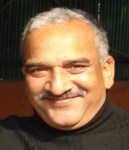The Wages Of Rawalpindi’s ‘Good Taliban’ Philosophy – OpEd

Pakistan's General Asim Munir. Photo Credit: ISPR, Wikipedia Commons
Lure of Lucre
It was in the late seventies that CIA finalised its covert plan for waging proxy war against the then Soviet army in Afghanistan by using radicalised Islamic fighters [mujahideen]. Codenamed Operation Cyclone, this devious enterprise came as a windfall for Pakistan’s military dictator-turned-resident Gen Zia ul Haq as it led to a Faustian US-Pakistan bargain [or to put it more precisely, an unholy agreement between CIA and Pakistan army’s spy agency Inter Services Intelligence or ISI].
Operation Cyclone was a classic example of proxy war. While ISI was required to provide radicalised and trained manpower to fight the occupational Soviet army in Afghanistan, Washington would divert requisite military hardware to arm the fighters as well finances to sustain this venture through CIA. Since ISI physically distributed weapons, military equipment and funds received from CIA to mujahideen groups, substantial diversion of US weapons and money for Pakistan’s proxy war in J&K as well as for lining the pockets of Generals was no big deal for Rawalpindi.
‘Poisoning’ Pakistani Society
The gains made by Pakistan in terms of extremely generous US military and financial aid packages were indeed enormous. In fact the lure for lucre was so compelling that Pakistan army’s leadership conveniently chose to disregard the inevitable negative consequences that its deeply flawed decision to host religiously indoctrinated Islamic fundamentalists on its soil portended for the hapless people of Pakistan. The saddest part is not Rawalpindi’s continuing state of denial but the pride with which Pakistan army Generals recall this abhorrent bargain that has claimed thousands of innocent lives.
During his 2010 interview given to Spiegel, Pakistan’s ex President and former army chief Gen Pervez Musharraf nonchalantly admitted that “We [Pakistan army] poisoned Pakistani civil society for 10 years when we fought the Soviets in Afghanistan in the 1980s.” He went on to boast that “It was jihad, and we brought in militants from all over the world, with the West and Pakistan together in the lead role.” This revelation was neither an emotional outburst nor an unintended or accidental utterance.
In 2019, Pakistani politician Farhatullah Babar shared an undated interview clip in which Gen Musharraf can clearly be heard saying that “…In 1979, we had introduced religious militancy in Afghanistan to benefit Pakistan and to push [the] Soviet out of the country. We brought Mujahideen from all over the world, we trained them, supplied weapons. They were our heroes.” Not only this, he even admitted that “Haqqani was our hero. Osama bin Laden was our hero.” [Emphasis added].
What Musharraf euphemistically referred to as “religious militancy” actually preached intolerance, sanctified violence against innocents by brazenly misquoting/distorting Islamic teachings. However, thanks to its effective propagation in madrassas [Islamic seminaries], this fundamentalist interpretation found widespread traction amongst talibs [students] in an impressionable age. Religious extremism thus took root within Pakistani society and spread like wildfire and several terrorist groups espousing such repugnant ideology mushroomed.
One such fanatical terrorist group is Tehreek-e-Taliban Pakistan [TTP] which shares Afghan Taliban’s skewed interpretation of Islam and wants to enforce it in Pakistan and therein lies the paradox- while Islamabad unconditionally endorses the regressive brand of Islam imposed by Afghan Taliban in Afghanistan, it doesn’t want TTP to do likewise in Pakistan. However, many locals in Pakistan’s Khyber Pakhtunkhwa province [which was a major religious indoctrination center since the late seventies] approve of TTP’s aim to establish sharia [Islamic religious laws] in Pakistan.
Rawalpindi’s Ambivalent Anti-Terrorism Policy
The Pakistan army makes it a point to repeatedly announce its zero-tolerance for terrorism and keeps reminding the world that it has made the maximum sacrifices in its war against terrorism. While the Pakistan army has definitely suffered inordinately high casualties due to terrorist violence, this doesn’t prove that its famous “We are going after terrorists of all hue and colour” claim made in 2014 during Operation Zarb-e-Azb anti-terrorist campaign in North Waziristan.
While the Pakistan army claimed to have killed more than 3,500 terrorists, surprisingly not even a single terrorist belonging to the Haqqani network was either killed or captured. That BBC South Asia correspondent Andrew North’s news report was aptly captioned “All hues or some shades in North Waziristan” and mentioned that “… many reports, as well as footage obtained by the BBC, suggest some militants at least got away and some shades of “terrorist” may still be safe.” [Emphasis added].
Rather than taking the menace of terrorism by its horns, Rawalpindi has been brokering peace agreements with various terrorist groups like the Shakai agreement [2004], Sararogha Peace Agreement [2005], Waziristan Accord [2006] and Swat Agreement [2008]. The Pakistan army has also facilitated several unwritten peace deals; some such agreements include those with terrorist leaders Hafiz Gul Bahadur [North Waziristan], Faqir Muhammad [Bajaur Agency] and Lashkar-i-Islami [Khyber Agency].
The fact that despite making several concessions to terrorist groups, none of these agreements endured just goes to prove that terrorists can never be trusted. However, despite being repeatedly backstabbed, Rawalpindi continued to appease TTP and in its desperate bid to make peace with this terrorist group [which was responsible for killing 134 school children in the gruesome 2014 Army School Peshawar massacre], even unconditionally released more than a 100 TTP fighters in its custody convicted for killing Pakistan army soldiers as well as civilians.
Prognosis
Pakistan army chief Gen Syed Asim Munir has been waxing eloquent on Rawalpindi’s zero tolerance towards terrorism and promising to slay this dragon- just like his predecessors did. And faithfully following the footsteps of previous army chiefs, he too is busy blaming all and sundry for the sorry state of affairs instead of taking timely and resolute action to tackle this scourge.
So as far as Pakistan army’s war on terror is concerned, Gen Munir has little to boast about other than attempting to discredit TTP by challenging its Islamic credentials and referring to it as Fitna al-Khawarij [the first religious-political breakaway group in the history of Islam]. He has also provided quasi-legitimacy to suppression to freedom of expression by coining the phrase “digital terrorism” to encompass actions that aim to create a gulf between state institutions and the people of Pakistan- a master stroke to muzzle growing public criticism of Pakistan army’s continuing meddling in political affairs and judicial matters.
Till now, both Islamabad and Rawalpindi have been primarily accusing foreign powers for fuelling terrorism in Pakistan. However, Gen Munir has taken his ‘digital terrorism’ argument to a different level by classifying inimical forces working acting against national interests into “malicious actors, subversive proxies, and the facilitators of Pakistan’s external and internal adversaries” changing the existing outlook on this issue and preventing constructive criticism of institutions by equating the same with treason!
It’s therefore most likely that Rawalpindi will continue with its reactive anti-terrorism strategy based on indiscriminate use of brute force and terrorising people through enforced disappearances and extrajudicial killings. That such an inhuman approach will only further aggravate the already precarious situation in Pakistan is obvious, but Rawalpindi doesn’t need to worry because l the blame can conveniently be apportioned on ‘digital terrorists’ and “malicious actors, subversive proxies, and the facilitators of Pakistan’s external and internal adversaries.”
Tailpiece: Despite Rawalpindi’s bombastic rhetoric aimed at diverting public attention from reality, it’s abundantly clear that the people of Pakistan are suffering [and will unfortunately continue to do so], only because the Pakistan army failed to eschew its puerile ‘good Taliban’ philosophy.
But Rawalpindi can’t complain that it wasn’t warned- in 2011, didn’t the then US Secretary of State Hilary Clinton during her Pakistan visit remind Pakistan army Generals that “You can’t keep snakes in your backyard and expect them only to bite your neighbors… eventually those snakes are going to turn on whoever has them in the backyard”?

Nilesh Kunwar
Nilesh Kunwar is a retired Indian Army Officer who has served in Jammu & Kashmir, Assam, Nagaland and Manipur. He is a ‘Kashmir-Watcher,’ and now after retirement is pursuing his favorite hobby of writing for newspapers, journals and think tanks.









